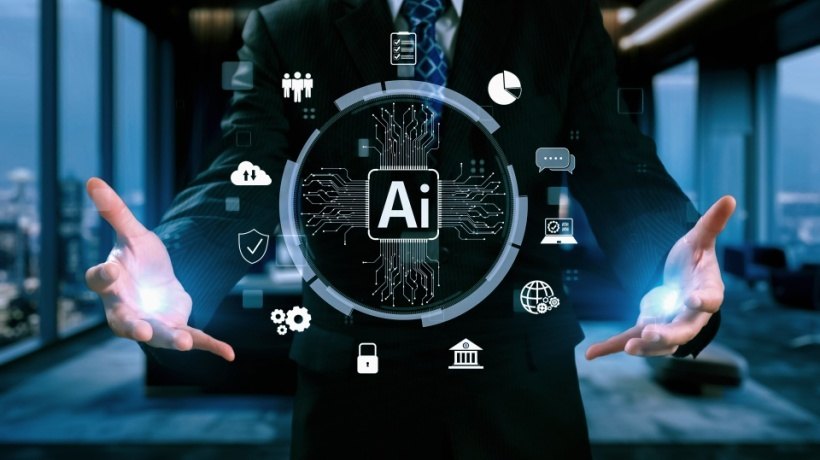Introduction To AI In Corporate Training
Artificial Intelligence (AI) is transforming various industries, and corporate training is no exception. Its potential to revolutionize training practices lies in its ability to enhance how employees learn, retain, and apply knowledge. In today’s fast-paced corporate environment, companies require their workforce to be equipped with the latest skills and knowledge to stay competitive. AI offers tools and techniques that significantly improve both the efficiency and effectiveness of corporate training programs and aid knowledge retention.
At the core of effective training is the ability to not only acquire information but to retain and apply it when needed. Innovative training methods, like adaptive memory games and challenging recall activities, when combined with AI, can foster training settings that are more adaptive, responsive, and effective. These approaches provide a more customized experience, making learning less of a chore and more of an engaging process. This is particularly important when learners are tasked with retaining large amounts of information over time.
Improving Memory Retention In Training
True success in corporate training comes when learners can effectively retain and recall their knowledge. Cognitive limitations, highlighted by psychologist George Miller in his “magical number seven, plus or minus two” theory, cap the amount of information we can handle simultaneously [1].
Traditional methods like rote learning tend to fill short-term memory but fail to secure knowledge in long-term memory, leading to quick forgetting. In contrast, active training techniques, such as interactive exercises and memory games, build stronger neural connections, helping to cement information more firmly in our minds.
Engagement Through Interactive Training Methods
Interactive training strategies, such as the free recall game, in which learners attempt to remember a list of items in any order, significantly boost engagement and retention. Such active recall methods enhance the neural pathways linked to the memory, making future recall easier. AI-driven prompts for spaced repetition and active recall can transform passive training into a more dynamic and effective process.
Tailored Training With AI
AI excels in delivering real-time personalized feedback and adjusting to a trainee’s pace and understanding, which is crucial for memory retention. It analyzes data from trainee interactions to highlight areas needing improvement, allowing trainees to adjust their approach and progress effectively. AI’s ability to customize training modules based on past performance ensures each trainee faces challenges tailored to their needs.
Understanding Memory Dynamics In Training
Grasping the dynamics of memory involves understanding concepts like the primacy and recency effects, where trainees tend to remember the first and last items in a series more distinctly. AI can utilize this cognitive bias by strategically placing key concepts at the start and end of training sessions to boost retention. Additionally, long-term memory’s expansive capacity versus short-term memory’s limited scope highlights the importance of effective training strategies to transfer knowledge to long-term storage.
Practical Techniques For Enhanced Corporate Training
To enhance the effectiveness of corporate training, techniques like segmented learning and chunking are essential. AI can break down complex information into smaller, more manageable segments, helping reduce cognitive load. Additionally, by grouping related data into meaningful chunks, AI makes it easier for learners to retain and recall information. These processes make large amounts of content more digestible, helping employees remember key concepts long after training has concluded.
Creating Interactive And Engaging Training Content
Beyond training structures, engaging content is essential for effective corporate learning. Techniques like storytelling and the use of multisensory educational materials—such as animations and infographics—draw on theories like dual coding to improve how information is processed and remembered. AI’s capability to produce and tailor multimedia content caters to diverse learning styles, making training more personalized, engaging, and inclusive.
The Transformative Role Of AI In Corporate Training
Incorporating AI into corporate training is more than just a trend—it is a game changer for how companies educate their workforce. By integrating AI with proven training methodologies, organizations can create more effective, scalable, and personalized learning experiences. AI adapts training content based on performance, ensures learners are consistently challenged, and helps bridge the gap between knowledge acquisition and retention.
As AI technology continues to advance, its role in corporate training will only grow, offering new ways to personalize learning and optimize training outcomes. From enhanced retention techniques to real-time feedback, AI promises to transform corporate training into a more efficient and tailored process, ensuring that employees are equipped with the knowledge and skills they need to succeed.
References:
[1] The Magical Number Seven, Plus or Minus Two
Welocalize, Inc.
Welocalize specializes in the language, technology platforms, and postproduction processes needed to translate and localize multimedia and global e-learning courses.

